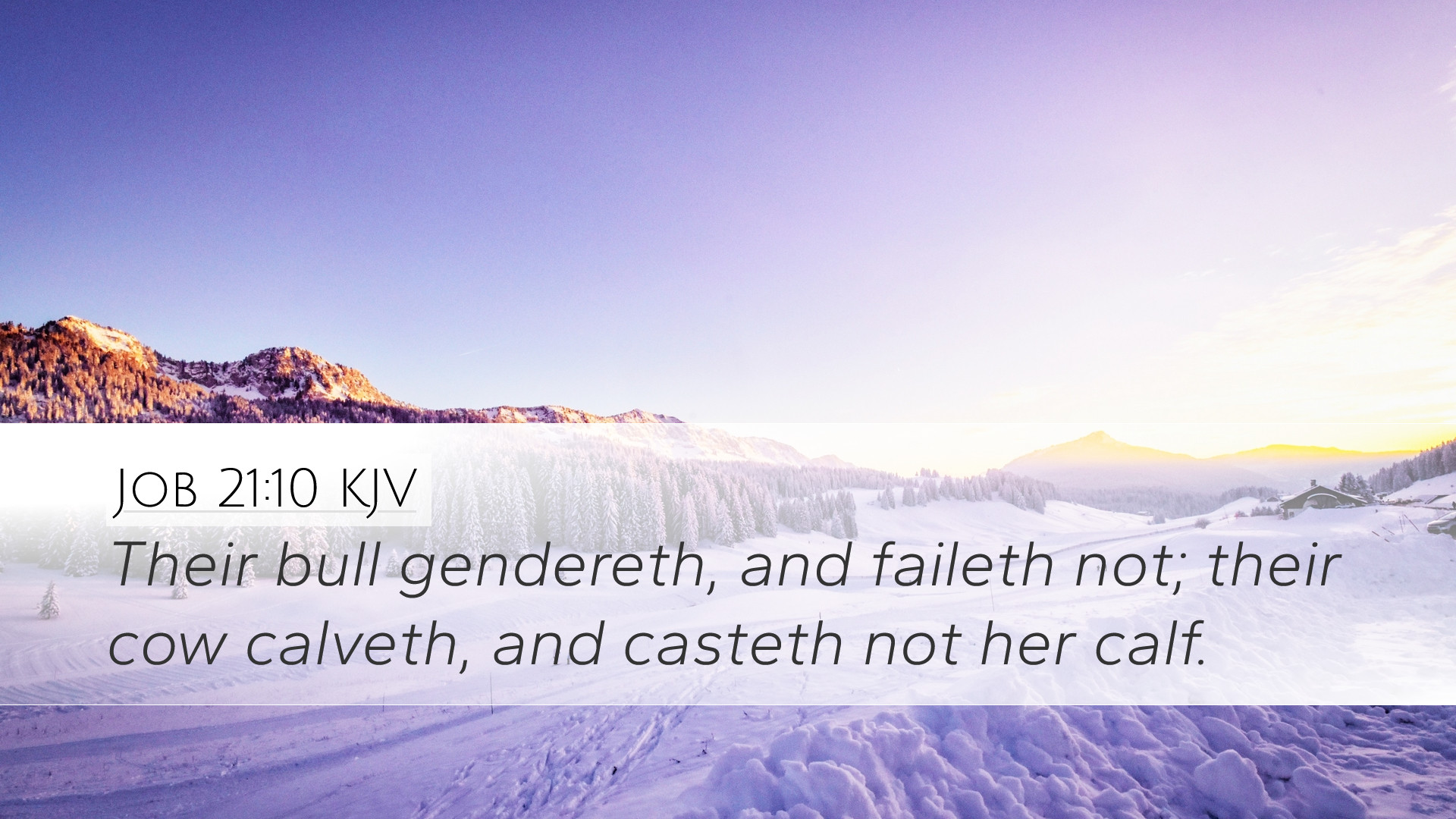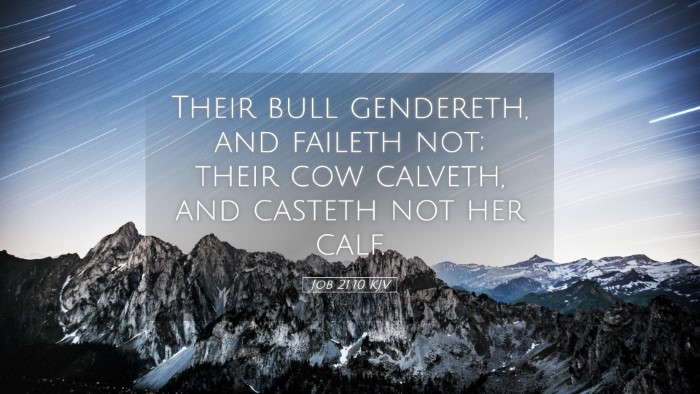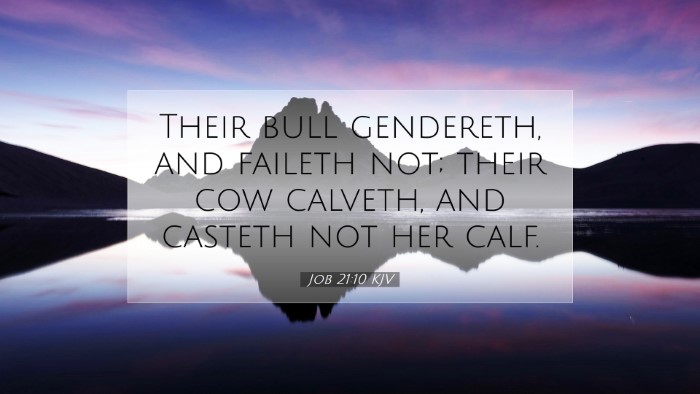Commentary on Job 21:10
Verse Text: "His bull gendereth, and faileth not; his cow calveth, and casteth not her calf."
Introduction
In Job 21, Job addresses the assertions of his friends about the fate of the wicked and the general principle of divine justice. In verse 10, he emphasizes the prosperity of the wicked by illustrating agricultural success, even when they are not righteous in their conduct. This assertion challenges the simplistic understanding of divine retribution that his friends espouse.
Contextual Analysis
The context of this verse centers around Job's defense of his integrity and a critique of the conventional wisdom held by his friends. Job articulates the apparent contradiction between the idea of a just God and the observable reality of the wicked thriving.
Job's Argument
Job's observations serve as a stark counterpoint to the simplistic maxims of his friends. He lists the blessings—successful reproduction in livestock—as evidence that the wicked often appear to prosper despite their unrighteousness. This wealth and success raise profound questions about justice, suffering, and the character of God.
Commentary Insights
Matthew Henry's Commentary
Matthew Henry emphasizes the stark observations that Job makes regarding the ungodly. He notes:
- The bull's success in breeding signifies strength and affluence.
- The cow’s ability to calve without difficulty symbolizes fertility and blessings.
Henry highlights that Job's claim exemplifies the reality that sometimes those who are wicked enjoy the fruits of the earth and family blessings, contrary to the piety preached by his friends. This observation negates the idea that worldly prosperity correlates directly with righteousness.
Albert Barnes' Commentary
Albert Barnes discusses this verse in the context of understanding complex moral realities. He states:
- The wicked often prosper materially, with no apparent divine punishment for their actions.
- The imagery of fruitful livestock illustrates the notion that physically abundant life does not guarantee spiritual or moral correctness.
He posits that this serves as a reminder to the faithful that exterior success does not necessarily equate to divine favor. Barnes encourages readers not to lose heart when they observe the apparent successes of the wicked, for there exists a deeper justice beyond mere earthly prosperity.
Adam Clarke's Commentary
Adam Clarke delves into the text with a linguistic and thematic approach. He observes:
- The phrase “gendereth” and “calveth” highlight the idea of life and continuation, emphasizing abundance.
- This may also symbolize that the wicked engage in wickedness while seemingly enjoying life’s pleasures and profiting from the same.
Clarke argues that this abundance enjoyed by the wicked should stimulate reflection on God’s ways. He points out that while they may flourish outwardly, Job's assertion implies a disconnect between their success and their moral standing, posing critical questions about divine justice.
Theological Reflections
The theological implications of Job 21:10 reach deep into the nature of God’s justice and the problem of evil. The traditional understanding that prosperity is the result of righteousness and suffering is the result of sin is challenged here.
- This verse invites theologians to explore the complexities of divine governance—why the wicked prosper, and the righteous suffer.
- It creates a space for lamentation and grappling with the apparent inequities in life.
Critical Questions Raised
Job's statement raises several critical questions that serve as reflection points for scholars and theologians:
- What does it mean for God to be just in a world where the wicked thrive?
- How do we reconcile observable reality with theological beliefs about God’s righteousness?
- What role does suffering play in a believer's life in light of God’s justice?
Conclusion
Job 21:10 serves as a poignant reminder of the tensions present in the human experience regarding prosperity and adversity. It urges pastors, students, and theologians to engage with the difficulties in Scripture candidly, fostering a deeper understanding of divine justice. As they contemplate the complexities of life, may they find solace in the truths of God’s character, even amidst the apparent triumphs of the unrighteous.


